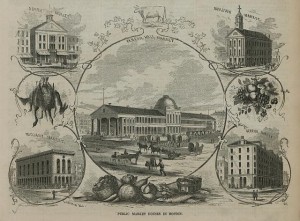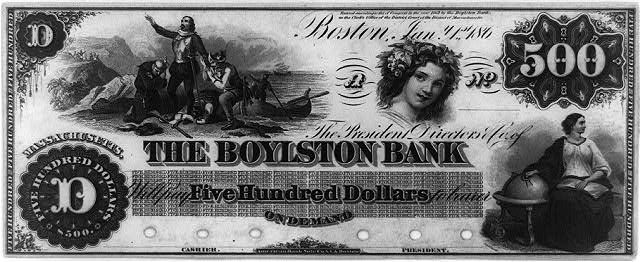An editorial in the Boston Journal via the Richmond Daily Dispatch of August 8, 1862 encourages Boston’s more successful men to volunteer instead of paying for substitutes:
Leading men wanted in the Federal army.
The Bottom [Boston] Journal has an editorial on volunteering which will be very unpalatable to the “solid men” of that city. It thinks the large bounties and subscriptions by citizens haven’t done much for the cause, and says:
It becomes us to inquire whether additional means are not necessary to secure us against the risks of failure. Instead, then, of every man of means and influence in the community casting about to see how he can induce somebody else to go to the war, would it not be advisable to consider, first, why he should not go himself? The army is suffering for want of the leading men of the North in its ranks — recruiting is suffering for the same reason — and so, too, is the public sentiment of the North. We all see it, and why should we not mention it?
By leading men, we simply mean the more favored and influential section of every community — active business men in every vocation, employers, men who rely on their skill and capital rather than manual labor, professional men, &c. These are the men who have the greatest stake in the salvation of their country. They ought to be fully represented in the army. Are they? Do we see them contributing their share — not of money, for they are nobly doing that, but of men — to the new enlistments? We fear not; and yet, what an impulse they might give, far beyond the most liberal bounties yet offered ! Suppose that out of this great city only ten or twelve of such young or middle-aged men as we have indicated should to- day offer themselves to the ranks, trusting to their own buoyant merit to settle their position hereafter, would not hundreds be brought ought by their example? And in what other way could they do so much good, even if Providence should protract their lives to the utmost limits, amid all the conceivable privileges won by the bravery and the blood of others? How, also, could they better build up sterling characters for themselves, or found more precious attachment in the hearts that are near and dear to them?
We are told that our women are keeping back volunteers, and we are pointed to the devotion, however mistaken, of the women of the South,–The trouble is not here. Woman is ever but the depository and exponent of the dominant feeling of the community — and man is the pioneer. If he has not entered into the field of active patriotism, she will linger. Have we, then, who pretend to represent the intelligence and the activity of the North, have we done our duty in this respect? Have we, in our daily lives, in the presence of our families and friends, given the impression that our love of country is real, vital, something for which we are willing to live or die, as the good of the country shall require? We feel profoundly thankful that so goodly a representation of the talent and influence and moral worth of the North is now in the loyal army — but we want more. Of all times, too, we want it now.


